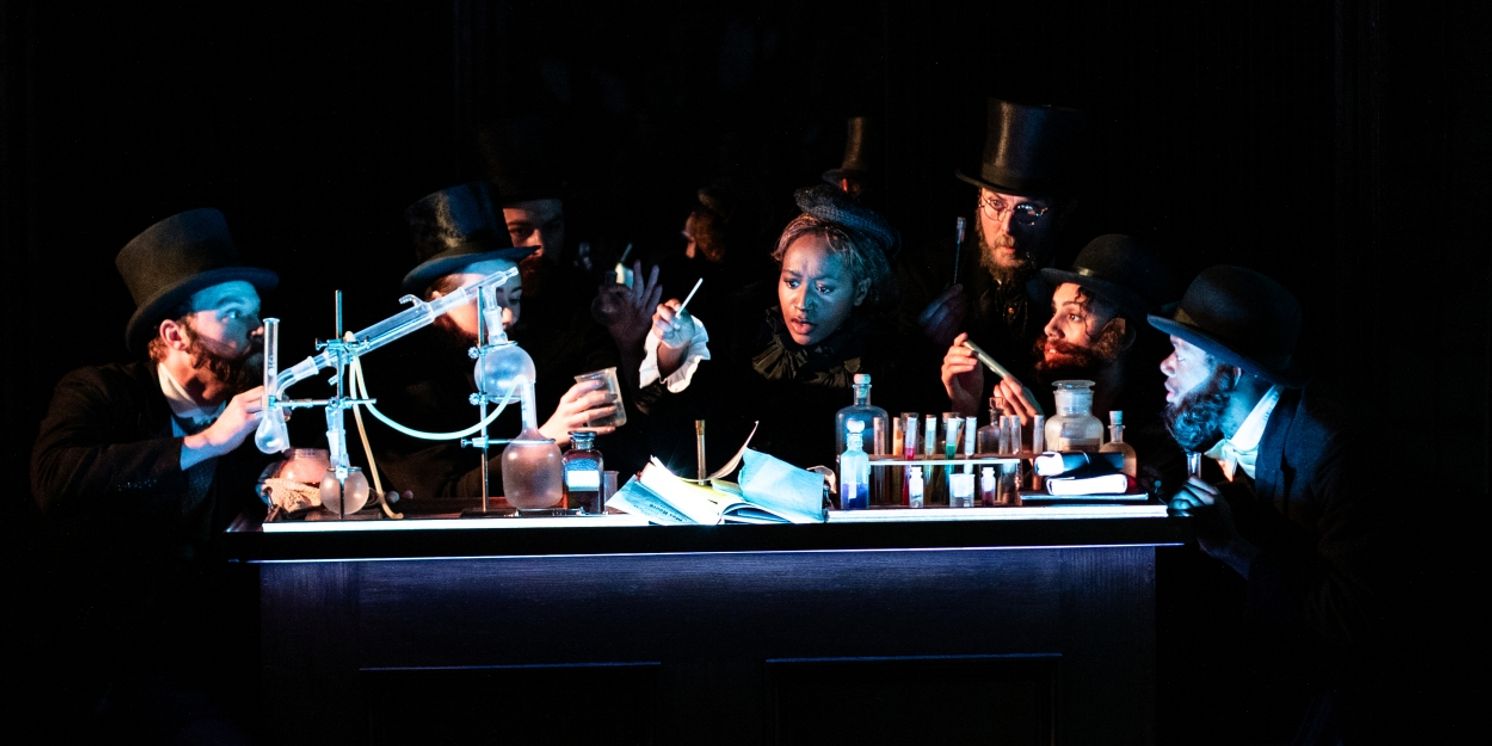Review: JEKYLL & HYDE, National Theatre Schools Tour
In Barking, kids feel the magic only live theatre can conjure

 No theatre reviewer is at their most chipper at 11am on a Monday, no matter how bright a Spring morning it may be. An hour or so on the Tube and a surrender of multifarious data just to pass through reception dampened the mood still further, but…
No theatre reviewer is at their most chipper at 11am on a Monday, no matter how bright a Spring morning it may be. An hour or so on the Tube and a surrender of multifarious data just to pass through reception dampened the mood still further, but…
There’s a unique atmosphere in a big, busy secondary school: kids moving too fast in corridors; conversations pitched slightly too high; badges displayed, ties askew, uniforms individualised within a hair’s breadth of a breach of the rules. Selves are being constructed, negotiated, manipulated - we’re in the midst of a vast cooperative factory that manufactures people.
I know this because Eastbury Community School is much like the comprehensive I attended in the 70s and that experience always lives inside you, good, bad and everything in-between.
%20Feruza%20Afewerki%2056.jpg?format=auto&width=1400)
Today is no ordinary Monday in Barking because select students (praise be, the school offers Drama as a subject) will not be outside playing games nor in classrooms studying maths, but in the sports hall, because The National Theatre is in town with its production of Jekyll and Hyde, one of the last stops in a nationwide carousel that has brought the play to over 10,000 pupils. It is impossible to overstate just how important such initiatives are, as arts funding reels in the face of cuts raining down from every angle.
Aimed at Year 9 and above (so more or less certificate 15 in the cinema - ie everything except Poor Things) Evan Placey’s kinda sequel to Robert Louis Stevenson’s gothic horror masterpiece explores some pretty dark places in the soul. It earns its trigger warnings and the odd sharp intake of breath amongst the audience who, even 90 minutes into the play, were on their feet at the back for fear of missing a crucial moment. And, I’m pleased to report, an onstage kiss can still elicit a whistle or two despite what we may fear teens are watching on their phones.
It’s project manager, Ollie Branton’s, second time in the gig after the play's 2022 tour and he and director, Kirsty Housley, run a very slick operation indeed. Miracles are created with a few lights, a few fences, a few mirrors and some mighty authentic looking costumes. The kids, always acute to any sense of being patronised, are most definitely not being fobbed off with anything less than NT production values.
It’s only in the levels of exposition and polemic that one feels the Young Adult dimension of the show poking through. There’s a strong line about female empowerment running as a key theme, then and now. The widowed Mrs Jekyll transforms into a Mrs Hyde out to exact revenge on the men who reject her scientific ambition and is also set on exposing their hypocrisy along the way. The present day is not neglected, as she is united over time with fan fiction writer and influencer, Florence, picked up and harangued by police who blame her and the women she inspires for civil unrest. There is indeed lots of duality and transgression to chew over.
It’s a complicated story, but it’s well told and I only detected a little drift in attention during a lengthy interrogation scene. That said, a few forthright exclamations on the different standards expected of women and men, even today, seasoned with a taboo-busting vocabulary and the audience were soon rapt again.
Don’t take my word for it. Pupils, Andrea and Crispin, were energised by the power of live theatre, of the shocking things said and done, of the immediacy of the violence - ‘The Real’ here was unmediated by a screen, an edit or CGI. The daring aspects of the play, the directness of language, the connection to the performance, was still alight in their minds when I spoke to them.
Branton confesses that those elements of the show had given the team cause for consideration a couple of years ago - the envelope was being pushed - but the feedback they received emboldened them to go further in trusting their audiences to deal with big issues that affect their lives.
The value of addressing such matters head on was appreciated by Megan, a drama teacher, who could now avoid any sugar-coating of such themes, always a temptation in a crowded curriculum. She also noted the opportunity it gave as a jumping off point for pupils’ own originality and creativity, as they look at devising as a creative technique next in their learning.
Rhian Bennett of The National Theatre underlined how crucial it was to open up theatre by taking it to its audience, not just in terms of the performance, but also with its visible wings, lighting desk and props. Her observation underlines that nothing helps to demolish Impostor Syndrome like showing that it’s really just people like you and me applying their talent by working hard.
Andrea and Crispin summed the day up perfectly - their thoughts were for their friends who hadn’t been lucky enough to have so unforgettable an experience. Let’s hope another 10,000 such impressive young people get the chance next year, as The National Theatre once again honours the first word in its name as much as the second.
Read more about The National Theatre's Schools Programme
Photo Credit: Feruza Afewerki
Reader Reviews
Videos


